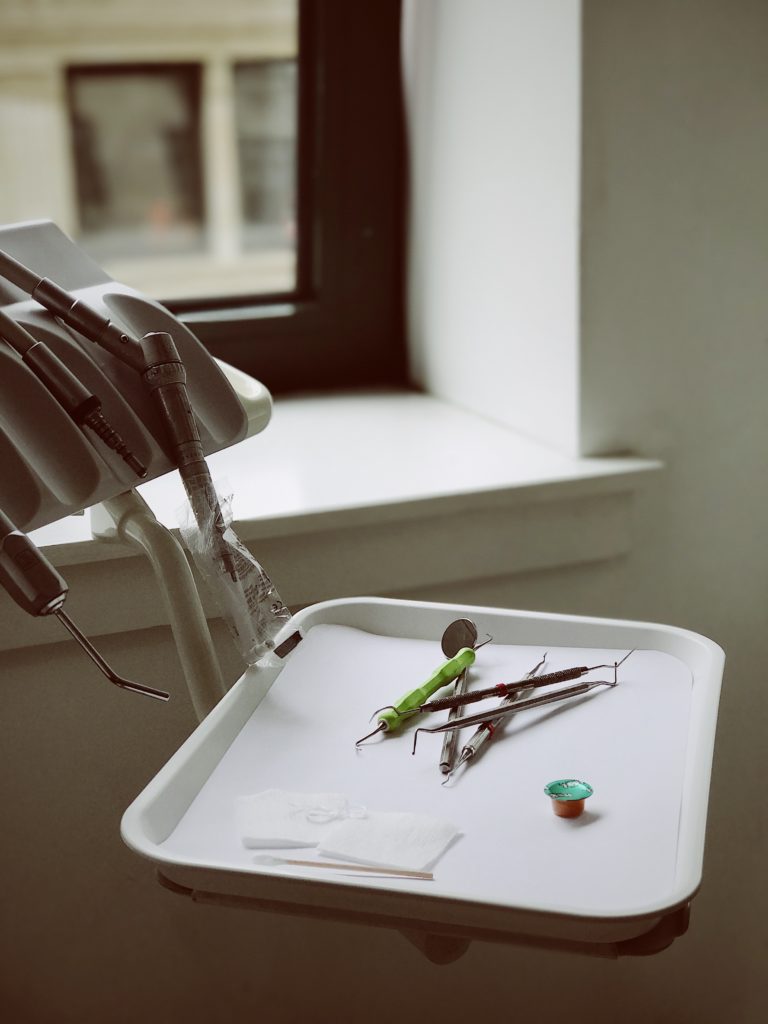Ugh, this week I’m due to visit my dentist. How many of us look forward to visiting a dentist? Visiting a dentist can be a stressful event for children as well as adults.
As I try to think about my childhood visits, I can’t recall what it was that triggers a negative feeling about the visit. I know I should go if I want to keep my teeth and gums healthy, but why do I dread going and feel nervous each time I’m scheduled to go…
Now that I have children, and I know I have to take them to the dentist, knowing that they might feel the same way as I, I asked a few dentists what they would say to parents of children as they make that important visit, what tips they’d give to recommend an easier, smoother transition to the visit: This is what they said:
- Visiting a dentist helps support healthy teeth
- Prepare your child for the visit – letting him/her know what to expect. Give simple information; often parents send their own messages of anxiety to children – avoid doing this.
- Tell your child that doctors/dentists are our heroes – they help us with keeping our teeth healthy.
To support healthy teeth:
1. Diet
Milk and juice should be given at mealtime only. Avoid giving milk at nighttime or bedtime, which is often the case. Serve nutritional food: fresh fruits, vegetables, yogurts, cheese, etc, rather than processed food from a box.
2. Vertical transmission of cavity-causing bacteria
Children are born without these bacteria. Word of caution to parents: Do not blow on your child’s food to cool it; your breath may contain small droplets of saliva, which may contain these bacteria. Refrain from sampling your child’s food. Do not place your child’s pacifier in your mouth to clean it. Rinse it off with water before giving it back to your child.
3. Regular dental check-ups and cleaning every 6 months
It is easier to prevent the disease or take care of the problem right away, rather than try to treat an advanced dental problem.
4. Childhood caries is an infectious disease
Childhood caries must be treated as soon as possible, even if it affects baby teeth and not permanent teeth.
5. Establish a daily brushing and flossing routine
Flossing may be hard for young children, but floss aid tools can help.
Prepare your child for the visit:
1. Give information before the dentist visit
Be honest with your child and let him know about the visit in advance. Inform your child what to anticipate without getting too detailed: “The dentist will count, check and clean your teeth.” These are examples of getting too detailed: “Dentist will use picks, tools,

You might want to check out a book about going to the dentist from the library or create your own simple story with simple illustrations, to tell your child what to expect. There are many good children’s books on dental visits such as Bernstein Bear story books.
2. Be honest
Avoid phrases such as: “It’s not going to hurt” or “Don’t be scared” or “you will be ok” or “The shot will be very fast, you won’t even feel it.” Phrases like that come from our personal fears. We are trying to convince and calm down ourselves that everything is ok. Children are easily influenced when we are anxious and scared. You want to build trust by being truthful and empathetic.
3. Do not threaten your child
Do not threaten your child with a visit to the dentist: “If you eat too much candy we will have to go to the dentist.” This will cause a negative cause-and-effect situation.
What doctors can do to support a child:
1. Narrate
Narrate his actions – often dentists who see children have this as part of their routine, to tell the child what to expect.
Talk slowly about the procedure: “I need you to open your mouth to see your teeth.”
“I am going to put this mirror inside; it will be a little bit cold.”
2. Let the child know
Let the child know how long it will take. Show the time passing with a clock.
Most children are apprehensive of their dental visit and the key is to manage it. The length and procedure should match the child’s level of acceptance (age-appropriate expectations).
3. Do not distract
Do not distract a child with TV, during the process. I know it’s so tempting to do so. It’s important for your child to process what is happening to his body.
Trust and respect play crucial roles in making dental visits easier and less stressful for both children and adults. Building trust with children involves preparing them for the visit, providing simple and honest information, and avoiding anxious messages. Ultimately, treating children with respect and adults with care helps create a positive dental experience for everyone involved.
Some of the medical advice was shared by Dr. Trent Kanemaki
Photo credit: Janko Ferlic, Jon Tyson, and Daniel Frank
Let me know if you need more information about RIE® Parent-Infant Guidance™ Classes.
Wishing you all the best in the difficult yet exciting journey of parenting!
Yours in parenting,
Teacher Kira








